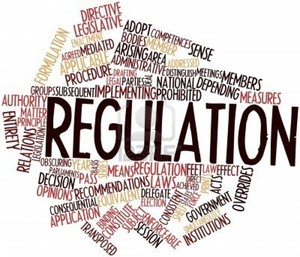The legislative basis for the regulation of biosimilars and its guideline for evaluation of biosimilars in South Korea was established in 2009 [1, 2].
The Ministry of Food and Drug Safety (MFDS) guideline is a general guideline covering considerations for the authorization of biosimilars, selection of reference products, and quality, non-clinical and clinical evaluation of biosimilars. The guideline covers ‘well-characterized recombinant protein products’. The guideline was revised in 2014 to reflect the current thinking of MFDS.
Product-specific guidelines are also being published annually, with guidelines for erythropoietin and somatropin (2011), granulocyte colony-stimulating factor (2012) and monoclonal antibody (2013) biosimilars already issued.
The Korean guideline for biosimilars was co-developed with the World Health Organization (WHO) guidelines and is thus harmonized with the European Union guidelines in its scope, data requirements for authorization. The guideline therefore requires a demonstration of similarity and a comprehensive characterization and comparison at the quality level to enable a reduction in the non-clinical and clinical data required for authorization. The regulatory decision is then based on a comprehensive evaluation of quality, safety and efficacy data.
MFDS defines a biosimilar as ‘a biotechnological product that is comparable to already marketed reference products in terms of quality, safety and efficacy.
Dossier requirements
A comprehensive characterization and quality comparison provides the basis for a reduction in the amount of non-clinical and clinical data required for biosimilars [3].
Clinical studies
The purpose of clinical studies of biosimilars is to demonstrate similarity to the reference product. Sensitive endpoints are therefore required in order to detect differences. For example, overall survival/progression-free survival (OS/PFS) are traditional anti-tumour endpoints for new drugs but may not be suitable for biosimilars.
Selection of endpoints and time points for evaluation should be justified and traditional endpoints should be included as secondary endpoints.
Reference products
Evidence of the similarity of the biosimilar to the reference product should be demonstrated. Such similarity should be based on a totality of evidence approach, which should include:
- differences between the biosimilar and its reference product, e.g. terminal sequences, post-translational modifications
- rationale of similarity criteria via statistical analysis of data from a sufficient number of samples during comparability tests
- any difference in the similarity criteria between the biosimilar and its reference product should be assessed and the impact justified, especially when related to safety and/or efficacy.
The similarity of a biosimilar will be accepted if it can be shown to be comparable in biological assays and in non-clinical and clinical studies.
Reference products should be already approved on the basis of a complete dossier package in Korea and should be used throughout studies supporting the quality, safety and efficacy of the biosimilar. Use of non-Korean (outsourced) reference products may be acceptable, provided that sufficient information to justify the comparability to Korean reference products is demonstrated.
Reference products approved in South Korea include Remicade (infliximab), Enbrel (etanercept), MabThera (rituximab), Humira (adalimumab), Herceptin (trastuzumab), Nesp (darbepoetin alfa), Lantus (insulin glargine) and Eprex (epoetin alfa).
Editor’s Comment
If you would like to receive an English copy* of the South Korean guidelines please contact us via email.
Readers interested in contributing a research or perspective paper to GaBI Journal – an independent, peer reviewed academic journal – please send us your submission here.
*For profit organizations subject to a fee
References
1. Joung J. Biosimilar regulation in Republic of Korea and Asia-Pacific Economic Cooperation (APEC) developments. Ministry of Food and Drug Safety. 2014.
2. GaBI Online – Generics and Biosimilars Initiative. South Korean guidelines for biosimilars [www.gabionline.net]. Mol, Belgium: Pro Pharma Communications International; [cited 2015 Apr 10]. Available from: www.gabionline.net/Guidelines/South-Korean-guidelines-for-biosimilars
3. Joung J. Korean regulations for biosimilars. Generics and Biosimilars Initiative Journal (GaBI Journal). 2015;4(2):93-4. doi:10.5639/gabij.2015.0402.019
Permission granted to reproduce for personal and non-commercial use only. All other reproduction, copy or reprinting of all or part of any ‘Content’ found on this website is strictly prohibited without the prior consent of the publisher. Contact the publisher to obtain permission before redistributing.
Copyright – Unless otherwise stated all contents of this website are © 2015 Pro Pharma Communications International. All Rights Reserved.








 0
0











Post your comment